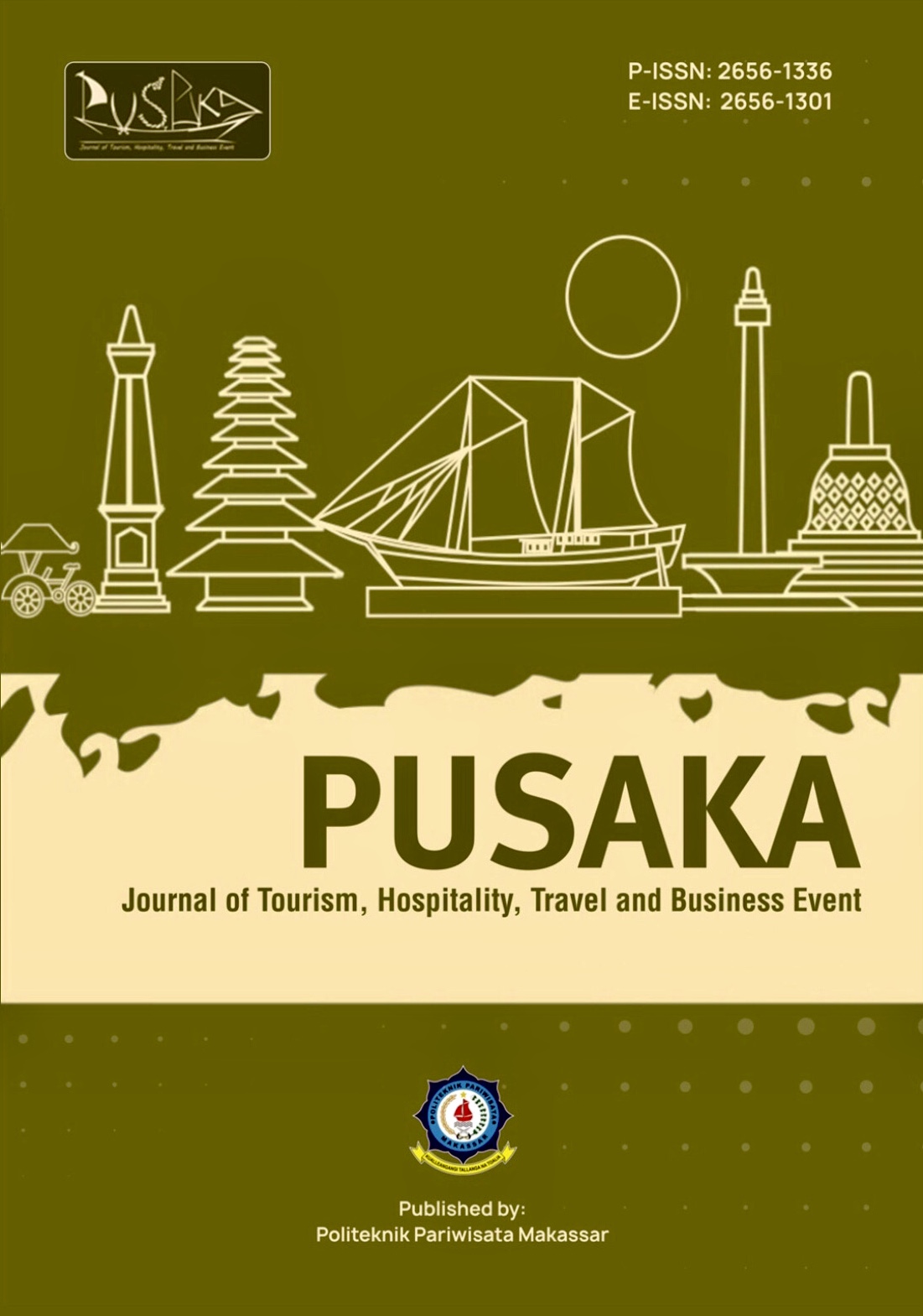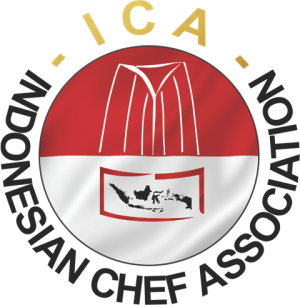Anti-fraud Strategy in Tourism Destination Organizations: The Role of Leader Integrity, Ethical Leadership and Trust in the Leader
DOI:
https://doi.org/10.33649/pusaka.v6i1.220Keywords:
Anti-Fraud;Strategy, Ethical, Integrity, Leadership, TourismAbstract
Fraud has enormous negative consequences, not only for enterprises but also for stakeholders and society. The study of fraud prevention has increased in importance in determining how businesses' strategies can prevent fraud and what factors influence the effectiveness of fraud prevention strategies. Leaders in an organization that manages tourist attractions have a critical role in preventing fraud. Built on the social exchange theory, this research investigates the relationship between leader integrity, ethical leadership, trust in the leader, and anti-fraud strategy in the tourism sector in Madura Island, Indonesia. Multi-source data was collected from 193 group members aware of the importance of the tourism sector (Tourism Community) in 4 tourism destination organizations across Madura Island, Indonesia. Findings from structural equation modeling confirmed that leader integrity, ethical leadership, and trust in the leader all contribute to a successful anti-fraud strategy. It has also been proven that there is a positive association between leader integrity and ethical leadership, as well as a connection between leader integrity, ethical leadership, and trust in the leader. This research contributes significantly to tourist management by presenting a theoretical model that connects leadership and anti-fraud strategy elements
References
ACFE. (2020). 2020-Report-to-the-Nations.
Adekanmbi, F. P., & Ukpere, W. I. (2020a). Influence of materialism, job satisfaction, and perceived managerial trustworthiness on attitude towards fraudulent behaviors in selected Nigerian Universities. In Review Article PSYCHOLOGY AND EDUCATION (Vol. 57, Issue 7). www.psychologyandeducation.net
Adekanmbi, F. P., & Ukpere, W. I. (2020b). Influence of materialism, job satisfaction, and perceived managerial trustworthiness on attitude towards fraudulent behaviors in selected Nigerian Universities. In Review Article PSYCHOLOGY AND EDUCATION (Vol. 57, Issue 7). www.psychologyandeducation.net
Afsar, B., & Shahjehan, A. (2018). Linking ethical leadership and moral voice: The effects of moral efficacy, trust in leader, and leader-follower value congruence. Leadership and Organization Development Journal, 39(6), 775–793. https://doi.org/10.1108/LODJ-01-2018- 0015
Anand, G., Chhajed, D., & Delfin, L. (2012). Job autonomy, trust in leadership, and continuous improvement: An empirical study in health care. Operations Management Research, 5(3–4), 70–80. https://doi.org/10.1007/s12063-012- 0068-8
Bakri, H. H. M., Mohamed, N., & Said, J. (2017). Mitigating asset misappropriation through integrity and fraud risk elements: Evidence emerging economies. Journal of Financial Crime, 24(2), 242–255. https://doi.org/10.1108/JFC-04-2016- 0024
Blau, P. M. (1964). Social Exchange.
Brown, M. E., & Treviño, L. K. (2006). Ethical leadership: A review and future directions. Leadership Quarterly, 17(6), 595–616. https://doi.org/10.1016/j.leaqua.2006.10. 004
Bussmann, K. D., & Niemeczek, A. (2019). Compliance Through Company Culture and Values: An International Study Based on the Example of Corruption Prevention. In Journal of Business Ethics (Vol. 157, Issue 3, pp. 797–811). Springer Netherlands. https://doi.org/10.1007/s10551-017- 3681-5
Cook, K. S., & Rice, E. (2006). Social Exchange Theory. In Handbook of Social Psychology (pp. 53–76). Springer US. https://doi.org/10.1007/0-387-36921-x_3
De Cremer, D., & Moore, C. (2019). Annual Review of Organizational Psychology and Organizational Behavior Toward a Better Understanding of Behavioral Ethics in the Workplace. Annu. Rev. Organ. Psychol. Organ. Behav. 2020, pp. 7, 369–393. https://doi.org/10.1146/annurevorgpsych-012218
de Cremer, D., & Vandekerckhove, W. (2017). Managing unethical behavior in organizations: The need for a behavioral business ethics approach. In Journal of Management and Organization (Vol. 23, Issue 3, pp. 437–455). Cambridge University Press. https://doi.org/10.1017/jmo.2016.4
den Hartog, D. N. (2015). Ethical Leadership. In Annual Review of Organizational Psychology and Organizational Behavior (Vol. 2, pp. 409–434). Annual Reviews Inc. https://doi.org/10.1146/annurevorgpsych-032414-111237
Duffy, R., & Smith, M. (2004). The Ethics of Tourism Development. Emerson, R. , M. (1976). Social Exchange Theory. Annual Review of Sociology, 2, 335–362.
Engelbrecht, A. S., Heine, G., & Mahembe, B. (2015). Article in Management Dynamics : Journal of the Southern African Institute for Management Scientists. https://www.researchgate.net/publication/ 280877476
Engelbrecht, A. S., Heine, G., & Mahembe, B. (2017). Integrity, ethical leadership, trust, and work engagement. Leadership and Organization Development Journal, 38(3), 368–379. https://doi.org/10.1108/LODJ-11-2015- 0237
Enwereuzor, I. K., Onyishi, I. E., AlbiOparaocha, F. C., & Amaeshi, K. (2020). Perceived leader integrity as a mediator between ethical leadership and ethical climate in a teaching context. BMC Psychology, 8(1). https://doi.org/10.1186/s40359-020-00420-6
Erb, M. (2015). Sailing to Komodo: Contradictions of tourism and development in eastern Indonesia. Austrian Journal of South-East Asian Studies, 8(2), 143–164. https://doi.org/10.14764/10.ASEAS2015.2-3
Gatling, A., Shum, C., Book, L., & Bai, B. (2017). The influence of hospitality leaders’ relational transparency on followers’ trust and deviance behaviors: Mediating role of behavioral integrity. International Journal of Hospitality Management, pp. 62, 11–20. https://doi.org/10.1016/j.ijhm.2016.11.01 0
Hair, J. F., Hult, G. T. M., Ringle, C. M., & Sarstedt, Marko. (2017). A primer on partial least squares structural equation modeling (PLS-SEM) (Second). Sage.
Huberts, L. W. J. C. (2018). Integrity: What it is and Why it is Important. Public Integrity. https://doi.org/10.1080/10999922.2018.1 477404
Izzaz Zahari, A., Said, J., & Arshad, R. (2019). Examining the Link between Ethical Culture and Integrity Violations: The Mediating Role of Integrity Climate. KnE Social Sciences. https://doi.org/10.18502/kss.v3i22.5053
Javed, B., Rawwas, M. Y. A., Khandai, S., Shahid, K., & Tayyeb, H. H. (2018). Ethical leadership, trust in leader and creativity: The mediated mechanism and an interacting effect. Journal of Management and Organization, 24(3), 388–405. https://doi.org/10.1017/jmo.2017.56
Kalshoven, K. (Karianne), & Ipskamp). (2010). Ethical leadership. [s.n.].
Kaptein, M. (2008). Developing and testing a measure for the ethical culture of organizations: The corporate ethical virtues model. Journal of Organizational Behavior, 29(7), 923–947. https://doi.org/10.1002/job.520
Kerse, G. (2021). A leader indeed is a leader: The relationship of ethical leadership, person-organization fit, organizational trust, and extra-role service behavior. Journal of Management and Organization, 27(3), 601–620. https://doi.org/10.1017/jmo.2019.4
Key, S. (1999). Organizational Ethical Culture. Journal of Business Ethics, 20(3), 217– 225.
Khair Ishak, N., Haron, H., & Ismail, I. (2019). Ethical Leadership, Ethical Climate and Unethical Behaviour in Institutions of Higher Learning. KnE Social Sciences. https://doi.org/10.18502/kss.v3i22.5064
Krambia-Kapardis, M. (2016). A Holistic Model of Corruption and Corporate Fraud Prevention.
Krummeck, S. (2020). The role of ethics in fraud prevention: A practitioner’s perspective. Business Ethics: A European Review, 9(4), 268–272.
Lambsdorff, G. (2015). Preventing corruption by promoting trust: Insights from behavioral science (69; 15). http://hdl.handle.net/10419/125558www. econstor.eu
Mangala, D., & Kumari, P. (n.d.). Corporate Fraud Prevention and Detention: Revisiting the Literature. https://ssrn.com/abstract=2678909
Mantzaris, E. A., & Pillay, P. (2017). Corruption and the Erosion of Citizen Trust in Brazil and South Africa (Vol. 9, Issue 8).
Marien, S., & Hooghe, M. (2011). Does political trust matter? An empirical investigation into the relation between political trust and support for law compliance. European Journal of Political Research, 50(2), 267–291.
Marquette, H., & Peiffer, C. (2015). DEVELOPMENTAL LEADERSHIP PROGRAM Corruption and Collective Action. www.dlprog.org
Moorman, R. H., Blakely, G. L., & Darnold, T. C. (2018). Understanding How Perceived Leader Integrity Affects Follower Trust: Lessons From Multidimensional Measures of Integrity and Trust. Journal of Leadership and Organizational Studies, 25(3), 277–289. https://doi.org/10.1177/15480518177505 44
Murphy, P. R., Free, C., & Branston, C. (2012). The Role of Ethical Climate in Fraud. The Role of Ethical Climate in Fraud.
Myeong, S., & Seo, H. (2016). Which type of social capital matters for building trust in government? Looking for a new type of social capital in the governance era. In Sustainability (Switzerland) (Vol. 8, Issue 4). MDPI. https://doi.org/10.3390/su8040322
N’Guilla Sow, A., Basiruddin, R., Mohammad, J., & Abdul Rasid, S. Z. (2018). Fraud prevention in Malaysian small and medium enterprises (SMEs). Journal of Financial Crime, 25(2), 499–517. https://doi.org/10.1108/JFC-05-2017- 0049
Nguyen, J., Dinh, T., & Stewart, M.,. (2019). TOWARDS A MODEL OF ECONOMIC CRISIS, SOCIAL TRUST & CORRUPTION.
Nunkoo, R., & Smith, S. L. (2014). Trust, Tourism Development and Planning.
Palanski, M. E., & Yammarino, F. J. (2009a). Integrity and leadership: A multi-level conceptual framework. Leadership Quarterly, 20(3), 405–420. https://doi.org/10.1016/j.leaqua.2009.03. 008
Palanski, M. E., & Yammarino, F. J. (2009b). Integrity and leadership: A multi-level conceptual framework. Leadership Quarterly, 20(3), 405–420. https://doi.org/10.1016/j.leaqua.2009.03. 008
Peterson, D. (2004). Perceived leader integrity and ethical intentions of subordinates. Leadership & Organization Development Journal, 25(1), 7–23. https://doi.org/10.1108/01437730410512 741
Pillay, P. (2017). Public Trust and Good Governance: A Comparative Study of Brazil and South Africa (Vol. 9, Issue 8).
Pulido-Fernández, M. de la C., & PulidoFernández, J. I. (2019). Is There a Good Model for Implementing Governance in Tourist Destinations? The Opinion of Experts. Sustainability, 11(12), 3342. https://doi.org/10.3390/su11123342
Queiroz, F., & Rastrollo-Horrillo, A. (2015). CONSTRUCTING INDICATORS FOR TOURIST DESTINATIONS GOVERNANCE: A THEORETICAL FRAMEWORK. https://www.researchgate.net/publication/ 309732428
Schaubroeck, J. , M., Hannah, S. , T., Avolio, B. , J., Kozlowski, S. , W. J., Lord, R. , G., Trevino, L. , K., Dimotakis, N., & Peng, A. , C. (2012). Embedding ethical leadership within and across organization levels. Academy of Management Journal, 55(5), 1053–1078. https://doi.org/10.5465/ainj.2011.0064
Scheetz, A. M., & Fogarty, T. J. (2019). Walking the talk: Enacted ethical climates as psychological contract venues for potential whistleblowers. Journal of Accounting and Organizational Change, 15(4), 654–677. https://doi.org/10.1108/JAOC-06-2018- 0047
Shafer, W. E., & Simmons, R. S. (2011). Effects of organizational ethical culture on the ethical decisions of tax practitioners in mainland China. In Accounting, Auditing and Accountability Journal (Vol. 24, Issue 5, pp. 647–668). https://doi.org/10.1108/09513571111139 139
Sharpley, R., & Telfer, D. J. (2015). Tourism and Development. http://www.multilingual-matters.com
Siva Vikaraman, S., Norhaini Mansor, A., & Izham Mohd Hamzah, M. (2018). Influence of Ethical Leadership Practices in Developing Trust in Leaders: A Pilot Study on Malaysian Secondary Schools. International Journal of Engineering & Technology, 7(3.30), 444. https://doi.org/10.14419/ijet.v7i3.30.1834 8
Sööt, M. L. (2012). The role of management in tackling corruption. Baltic Journal of Management, 7(3), 287–301. https://doi.org/10.1108/17465261211245 463
Suh, J. B., & Shim, H. S. (2020). The effect of ethical corporate culture on anti-fraud strategies in South Korean financial companies: Mediation of whistleblowing and a sectoral comparison approach in depository institutions. International Journal of Law, Crime and Justice, 60. https://doi.org/10.1016/j.ijlcj.2019.10036 1
Suh, J. B., Shim, H. S., & Button, M. (2018). Exploring the impact of organizational investment on occupational fraud: Mediating effects of ethical culture and monitoring control. International Journal of Law, Crime and Justice, pp. 53, 46–55. https://doi.org/10.1016/j.ijlcj.2018.02.003
World Economic Forum. (2019). The Travel and Tourism Competitiveness Report 2019.
Yousaf, M., Ihsan, F., & Ellahi, A. (2016). Exploring the impact of good governance on citizens’ trust in Pakistan. Government Information Quarterly, 33(1), 200–209. https://doi.org/10.1016/j.giq.2015.06.001
Yukl, G., Mahsud, R., Hassan, S., & Prussia, G. E. (2013). An improved measure of ethical leadership. Journal of Leadership and Organizational Studies, 20(1), 38–48. https://doi.org/10.1177/15480518114293 52
Zahari, A. I., Said, J., & Arshad, R. (2020). Organizational fraud: a discussion on the theoretical perspectives and dimensions. Journal of Financial Crime, 27(1), 283– 293. https://doi.org/10.1108/JFC-04- 2019-0040
Zahari, A. I., Said, J., & Arshad, R. (2021). Examining the Components of Integrity. Integrative Psychological and Behavioral Science. https://doi.org/10.1007/s12124- 021-09626-8
Zikhali, W. (2019). Community policing and crime prevention: Evaluating the role of traditional leaders under Chief Madliwa in Nkayi district, Zimbabwe. International Journal for Crime, Justice and Social Democracy, 8(4), 109–122. https://doi.org/10.5204/ijcjsd.v8i4.1179
Zuberi, O., & Mzenzi, S. I. (2019). Analysis of employee and management fraud in Tanzania. Journal of Financial Crime, 26(2), 412–431. https://doi.org/10.1108/JFC-01-2018- 0012
Downloads
Published
How to Cite
Issue
Section
License

This work is licensed under a Creative Commons Attribution-ShareAlike 4.0 International License.






















